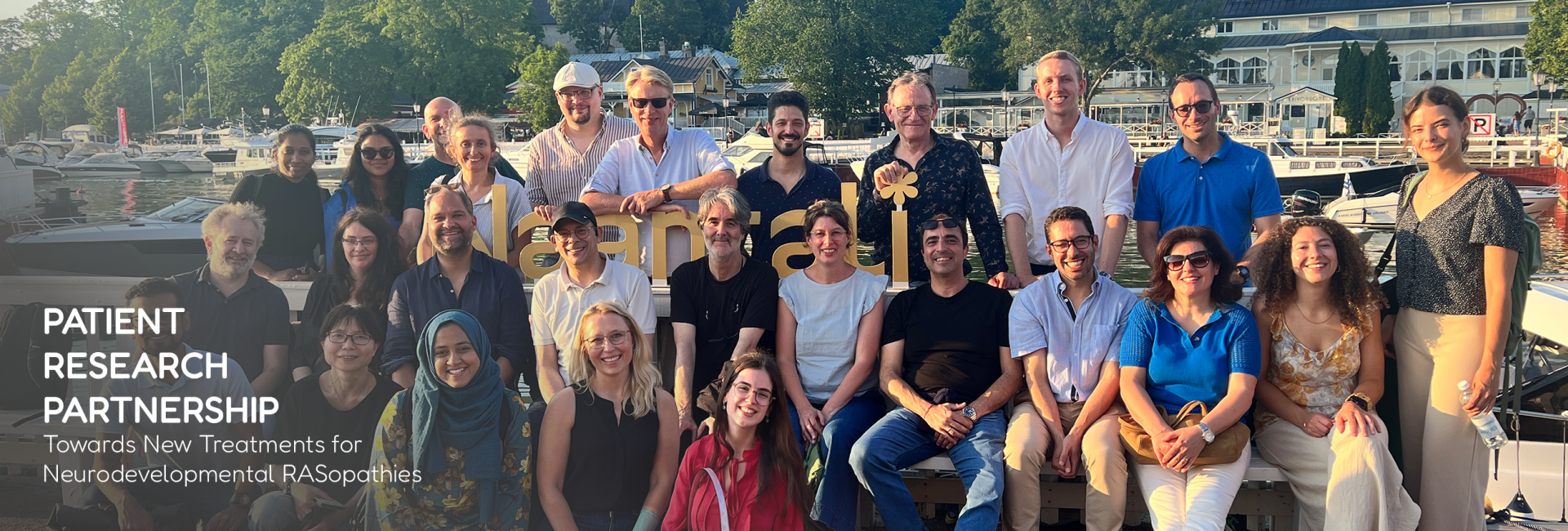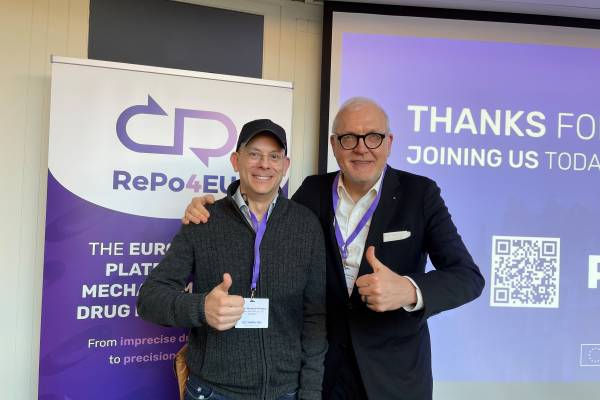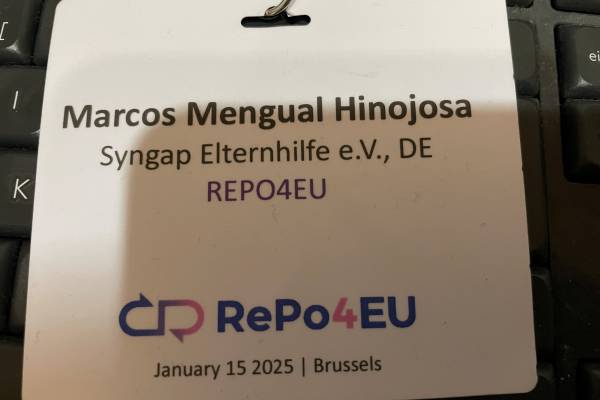The Role of Patient Organizations in Accessing Therapies – EURAS partner Marcos Mengual Hinojosa at REPO4EU Policy Event
On January 15, 2025, the REPO4EU Research & Innovation Policy Event took place in Brussels under the leadership of Prof. Harald H.H.W. Schmidt. The event focused on drug repurposing – the process of identifying new therapeutic uses for already approved medicines. This strategy holds great promise, especially in the field of rare diseases, where it offers a faster and more cost-effective path to new treatments.
One of the key topics of discussion was how to improve the drug repurposing process to facilitate and accelerate patient access to innovative therapies. The event marked the starting point of a series of dialogues with stakeholders from across the healthcare ecosystem to further explore this issue in the coming months.
Currently, two large EU-funded initiatives – REPO4EU and REMEDi4ALL – are working to develop standardized platforms and clear regulatory pathways for repurposed medicines. This is particularly important given that only around 5% of the 5,000 to 7,000 known rare diseases currently have an approved treatment.
Against this backdrop, drug repurposing is gaining traction as a pragmatic, lower-risk alternative – especially when compared to complex and costly gene therapies. While such advanced approaches remain crucial for the future, repurposing offers a more immediate opportunity to address unmet medical needs.
As a representative of SYNGAP Elternhilfe e.V. and an active participant in the EURAS Project, Marcos Mengual Hinojosa was invited to speak in the event’s first panel and present the patient organization perspective. As the father of a child with SYNGAP1 syndrome, he emphasized the urgency of making therapies available as quickly as possible to improve quality of life. He also highlighted the importance of understanding and accompanying the entire development and approval process from a patient advocacy point of view.
A recurring and especially valuable point of discussion was how to improve collaboration between researchers and patient organizations. The growing recognition of patients as equal partners in research underscores the value of targeted, needs-driven approaches that reduce unnecessary investment of time, money, and resources.
Overall, the event offered encouraging insights and demonstrated a clear shared commitment to driving progress. It also reinforced a critical message: patient organizations are no longer just beneficiaries of medical research – they are key partners in shaping its future.



